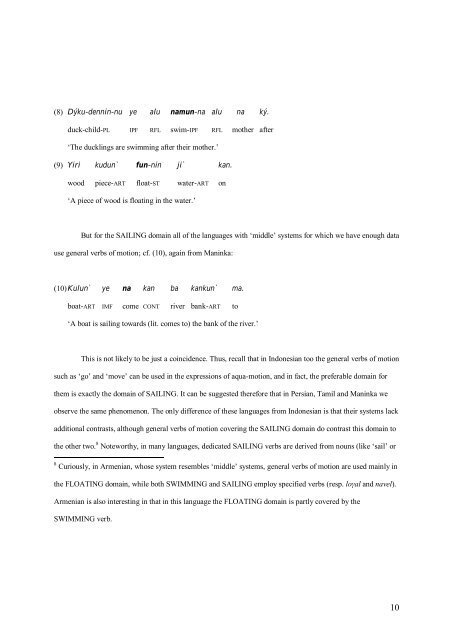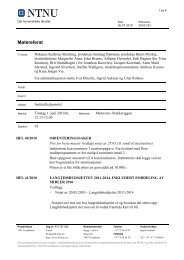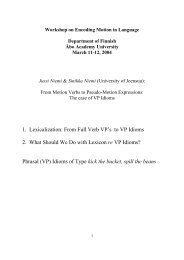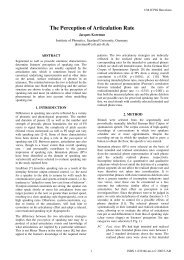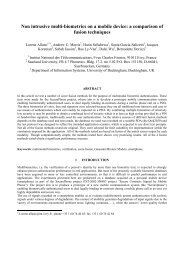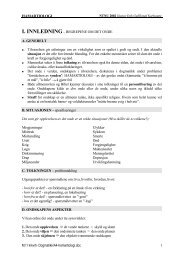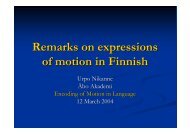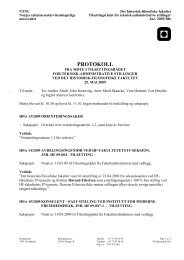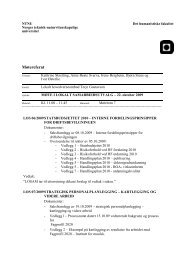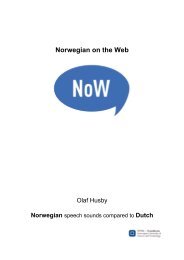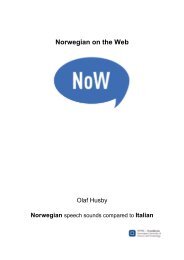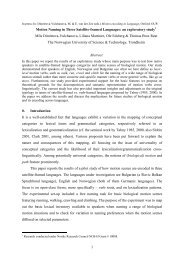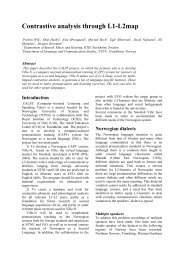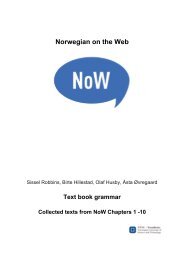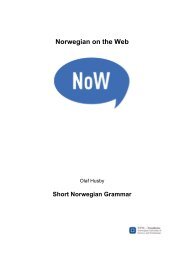Domains of aqua-motion: a case study in lexical typology Yury A ...
Domains of aqua-motion: a case study in lexical typology Yury A ...
Domains of aqua-motion: a case study in lexical typology Yury A ...
You also want an ePaper? Increase the reach of your titles
YUMPU automatically turns print PDFs into web optimized ePapers that Google loves.
(8) DýØkuØ-deØnnián-nuØ yeÉ aØluÉ naÉmuÉn-naÉ aØluÉ ØnaÉ kýÉ.<br />
duck-child-PL IPF RFL swim-IPF RFL mother after<br />
‘The duckl<strong>in</strong>gs are swimm<strong>in</strong>g after their mother.’<br />
(9) Yiáriá kuÉduÉn` fuÉn-nián jiá` kaØn.<br />
wood piece-ART float-ST water-ART on<br />
‘A piece <strong>of</strong> wood is float<strong>in</strong>g <strong>in</strong> the water.’<br />
But for the SAILING doma<strong>in</strong> all <strong>of</strong> the languages with ‘middle’ systems for which we have enough data<br />
use general verbs <strong>of</strong> <strong>motion</strong>; cf. (10), aga<strong>in</strong> from Man<strong>in</strong>ka:<br />
(10) KuÉluÉn` yeÉ naÝ kaØn baÉ kaÉnkuÉn` maØ.<br />
boat-ART IMF come CONT river bank-ART to<br />
‘A boat is sail<strong>in</strong>g towards (lit. comes to) the bank <strong>of</strong> the river.’<br />
This is not likely to be just a co<strong>in</strong>cidence. Thus, recall that <strong>in</strong> Indonesian too the general verbs <strong>of</strong> <strong>motion</strong><br />
such as ‘go’ and ‘move’ can be used <strong>in</strong> the expressions <strong>of</strong> <strong>aqua</strong>-<strong>motion</strong>, and <strong>in</strong> fact, the preferable doma<strong>in</strong> for<br />
them is exactly the doma<strong>in</strong> <strong>of</strong> SAILING. It can be suggested therefore that <strong>in</strong> Persian, Tamil and Man<strong>in</strong>ka we<br />
observe the same phenomenon. The only difference <strong>of</strong> these languages from Indonesian is that their systems lack<br />
additional contrasts, although general verbs <strong>of</strong> <strong>motion</strong> cover<strong>in</strong>g the SAILING doma<strong>in</strong> do contrast this doma<strong>in</strong> to<br />
the other two. 8 Noteworthy, <strong>in</strong> many languages, dedicated SAILING verbs are derived from nouns (like ‘sail’ or<br />
8 Curiously, <strong>in</strong> Armenian, whose system resembles ‘middle’ systems, general verbs <strong>of</strong> <strong>motion</strong> are used ma<strong>in</strong>ly <strong>in</strong><br />
the FLOATING doma<strong>in</strong>, while both SWIMMING and SAILING employ specified verbs (resp. loγal and navel).<br />
Armenian is also <strong>in</strong>terest<strong>in</strong>g <strong>in</strong> that <strong>in</strong> this language the FLOATING doma<strong>in</strong> is partly covered by the<br />
SWIMMING verb.<br />
10


